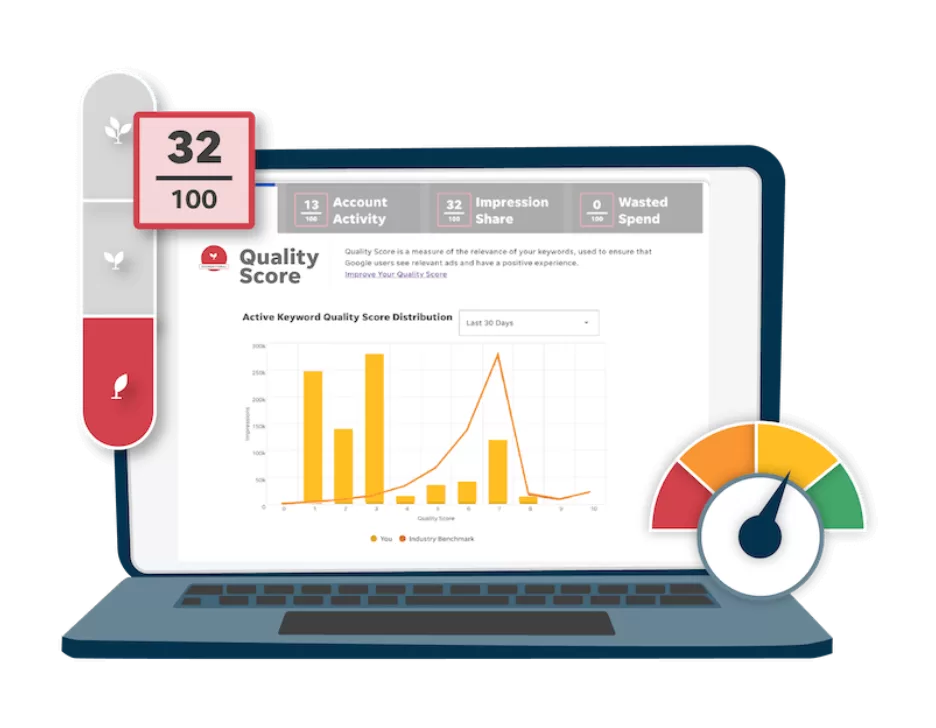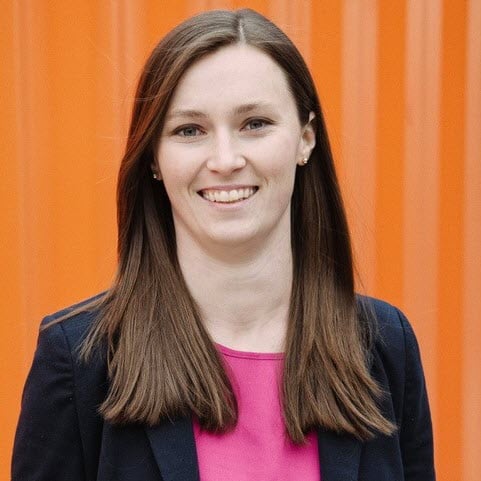Many advertisers for many years used enhanced cost per click (also known as enhanced CPC or ECPC) bidding to streamline their manual bid management with the help of machine learning and AI.
Google announced on September 5, 2024, that enhanced CPC will be going away in the coming months. The transition started in October 2024 and will continue to the final deadline of March 2025. For our article today, we want to cover what’s changing during that time frame and what you can do moving forward to move away from ECPC bidding.
Contents
- What is enhanced CPC bidding?
- Enhanced CPC transition timeline
- Moving beyond ECPC: Other bidding options
- Tips to prepare for the deprecation of ECPC
What is enhanced CPC bidding?
As a quick refresher, enhanced CPC bidding is an augmentation of the manual CPC strategy where advertisers can allow Google’s machine learning to increase their manually chosen max CPC bids for users it thinks are more likely to convert and lower the bid when a conversion is less likely.

Historically, this has been a good box to check for manual CPC campaigns that have conversion tracking included as it can help to optimize performance and usually sees decent results.
These enhancements were able to be focused on conversions or conversion value, depending on your campaign goals.

💸 See how you can keep your PPC costs low no matter your bid strategy with our free guide to 6 easy ways to save money in Google Ads NOW!
Enhanced CPC transition timeline
As of October 2024, enhanced CPC will be phased out in different ways. Here’s a summary:

Like most other Google Ads changes, these changes are likely rolling out in waves to different accounts, so yours may or may not already have these restrictions in place.
If your heart is set on keeping ECPC around for as long as possible, now is the time to go into your accounts and try to get it applied where you can.
Just take note, that in March 2025, all campaigns using enhanced CPC will be changed to the manual CPC bid strategy, no matter what your preferences are.

⏰ Should you move away from enhanced CPC sooner rather than later? Find out with our Free Google Ads Grader!
Moving beyond ECPC: Other Google Ads bid strategy options
If you’re not married to the ECPC bid strategy for now or you’re planning ahead for March, then let’s talk about your options for Google Ads bidding strategies that aren’t ECPC.
Optimizing for clicks
When optimizing for a higher click-through rate, try these bid strategies.
Manual cost per click (Manual CPC)
Manual cost per click bidding is the closest to enhanced CPC. The only difference is if there’s no machine learning adjustment for your bid depending on the likelihood of a conversion.
My guess is that anyone using enhanced CPC is likely already familiar with manual CPC because they are so similar. For manual CPC you set your bid, Google then enters you into the auction with a maximum bid of the amount you set, and then depending on the combination of your bid and ad rank, you’ll potentially earn a spot on the SERP.

As this transition is taking place, if you are using enhanced CPC and do nothing to your campaign, it will automatically default back to manual CPC in March 2025. For the most part, things will be the same for you as they were with enhanced CPC. You’ll need to regularly review performance and make adjustments based on the metrics to try and improve your campaign results.
Depending on how much volume of clicks and conversions your campaigns have, it may make sense for you to adjust this twice a week, once a week, every couple of weeks, or maybe even longer. More often than not, for my clients, I try to adjust once a week or once every two weeks using only the latest data to make sure things are moving in the right direction.
With manual CPC you have full control. Google will not interfere with or adjust your bids.
Maximize clicks
Maximize clicks is the second bidding strategy you can use to focus on a click activity in Google Ads, but unlike manual CPC, this strategy is entirely automated by Google.
With maximize clicks, Google will try and spend your entire daily budget every single day while getting as many as possible for your budget. A kind interpretation of that strategy is that Google will try and get you lots of clicks at a low cost per click to get you as much volume as it can.
But a less friendly interpretation is that even if click costs are very high on a certain day for your keywords, Google will still try to bid to get as many clicks as possible and spend your entire daily budget, even though it’s a less efficient day.
Maximize clicks does allow you to have a bid limit for the campaign. If for some reason you know you don’t want to bid over five dollars for a certain campaign, all you have to do is set that as a max bid limit and Google will bid anywhere below and up to that $5 limit while still trying to spend your entire daily budget every day at that bid.

Maximize clicks does not pay attention to anything that has to do with conversion performance. It’s only trying to get as many clicks as possible and spend your entire budget.
If you’re a performance marketer trying to optimize for your conversion or conversion value metrics, which you likely are if you’ve opted into enhanced CPC, maximize clicks might not be the right fit for you even though it’s the only other strategy that focuses on clicks.
Optimizing for conversions
The next two strategies focused on conversion performance and may be a better fit for users who were optimizing using enhanced CPC since they also take conversion performance into account.
Maximize conversions
The maximize conversion bid strategy is similar to the maximize clicks strategy in that it does try to spend your entire ad budget every single day, but rather than trying to get as many clicks as possible, Google will try to get as many conversions as possible for that same budget. As a performance marketer, I prefer a conversion-focused strategy over a click-focused strategy because that’s where businesses can actually make progress and move forward with their customers.

Maximize conversions is also similar to maximize clicks in that Google lets you add a target cost per action. The difference is that rather than being a maximum, this lets you tell Google what you want your average cost per conversion to be. Over time, individual conversions may be at a higher level than your target CPA and others will likely be lower, but on average, Google is trying to get you as many conversions as it possibly can at your target CPA. This is also one of the bid strategies where Google will actually throttle spending, meaning it will likely pull back on spending if it’s not consistently hitting the target CPA. From the advertiser perspective, you’ll keep spending and converting at a reasonable rate if Google can hit your target CPA, but if it can’t it’ll save you money by pulling back until it finds ways to be more efficient and hit your target.
For advertisers currently using enhanced CPC, maximize conversions, especially with a target CPA included, is a strong option for replacement. You’ll be able to lean into Google’s machine learning to help optimize conversion performance, but you won’t have to make granular CPC changes on a regular basis to try and hit those stats.
Maximize conversion value
Maximize conversion value is the other conversion-focused strategy, and again most things are very similar to the maximize conversion strategy, but rather than trying to get you a higher number of conversions, Google is going to optimize to get you more conversion value or more revenue.
Just like a few others, when you’re using only maximize conversion value, this strategy will continue to try and spend your entire daily budget every single day.
However, you can also add a target return on ad spend (target ROAS) to tell Google what level of performance you want to see from that campaign. Again, some individual sales will have a higher ROAS and others will have a lower ROAS, but over time if you have enough conversion volume and realistic ROAS goals, the campaigns will likely end up performing pretty close to the target you set.

For businesses using enhanced CPC that focus on revenue rather than number of conversions, I believe target ROAS is a great option for you to test for all the same reasons target CPA is for those focusing on conversions:
- Your campaigns will optimize to the profitability metrics you set.
- Google will throttle spending if you’re not hitting targets and spend as much as possible if you are.
- You avoid needing to review keyword-level bids on a regular basis, instead letting Google make those adjustments in real time.
Tips for Google Ads bidding without using enhanced CPC
If you’re using enhanced CPC bidding because you’re focusing on conversions but still want some control, my recommendation would be to test out maximize conversions with a target CPA or maximize conversion value with a target ROAS as those are the smart bidding strategies that will optimize conversion, but also allow you to control the metrics that you want to see as the end results. In some instances, your performance metrics like CPA and ROAS might look similar to your enhanced CPC campaigns, but your CPCs may look drastically different than they did when you were using enhanced CPC.
In my experience, and what I’ve heard is the experience of many other advertisers, although the CPCs are higher for automated bidding strategies, the resulting CPA or ROAS are comparable because of the machine learning on the back end.
If you’re using enhanced CPC and are interested in testing one of these conversion bidding strategies, or honestly, any of the other bidding strategies, then my suggestion for you would be to set up a campaign experiment in Google Ads and see what performs best.
If your campaign can still retain enhanced CPC from the time between October and March, maybe leave ECPC in place in your control campaign and run experiments with other bidding strategies to see how they perform.

But if you’re reading this article after March 2025 or if your account will no longer let you opt into ECPC, then it might make sense for you to test manual CPC against any of the other bidding strategies that you think might be a good fit for your campaign. Manual CPC is the closest thing we have to enhanced CPC, so you’ll be able to control performance as close as possible to your existing campaign. You can use the experiment campaign to test a new strategy and see if machine learning can do a better job or if you need to retain Manual CPC and just accept the fact that you’ll no longer have automated adjustments to your bids depending on the likelihood of conversion.

Say goodbye to enhanced CPC and hello to new bid strategy testing opportunities
As a marketer who’s been in the space for 15 years now, I’m definitely bummed to see that enhanced CPC is going away. If I ever use manual bidding, I always opt into ECPC because it has performed pretty well in the majority of my accounts. Although we’re retaining the Manual CPC strategy, it still feels like the writing is on the wall. We’re continuing to shift further and further into Google’s fully automated bidding hands and away from more advertiser control. That said, you will likely see very strong performance from automated bidding as long as you have your conversion tracking set up properly and your feeding data back into the system on a regular basis get more Google Ads updates here).
Hopefully, this rundown gives you an understanding of how this transition away from ECPC will take place and what you’ll be able to do in your account moving forward. For more help navigating major platform updates, see how our solutions can help you maximize your campaigns no matter what Google throws your way!








